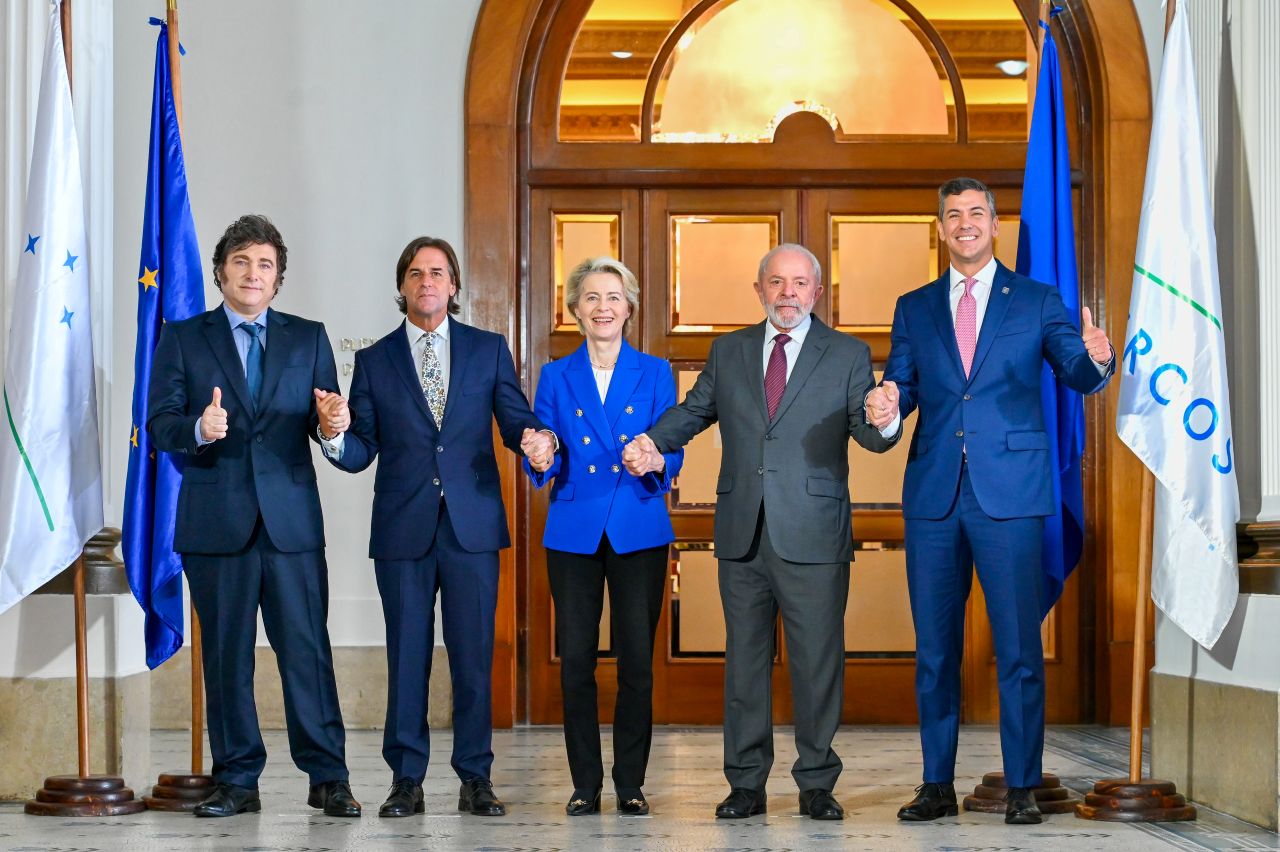“The conclusion of the EU-Mercosur trade agreement marks a historic milestone in strengthening the ties between two regions that share values and ambitions. It has been a long journey, culminating in an agreement that affects more than 700 million people. This agreement is good news for consumers, economic growth and employment in Europe,” explains Gabriel Mato MEP, the Parliament’s lead negotiator on the EU-Mercosur free trade agreement.
“This is a historic moment for Europe. We have just concluded negotiations with Mercosur, creating the largest free trade zone in the world, with an additional market of more than 260 million potential customers for European goods. It simplifies exports, lowers tariffs, and sets standards, creating significant job opportunities and economic growth in Europe. This is a much-needed boost to EU competitiveness. We must now swiftly ratify the EU-Mercosur trade deal,” says Jörgen Warborn MEP, the EPP Group’s Spokesman on International Trade.
The European Commission and the Mercosur Common Market Council concluded negotiations on the EU-Mercosur trade agreement today in the Uruguayan capital Montevideo.
“The elimination of 91 per cent of tariffs will create unprecedented opportunities for European businesses, benefiting key sectors such as automotive and pharmaceuticals. At the same time, the agreement reaffirms Europe’s commitment to sustainability, including robust measures to combat deforestation and climate change. This is a clear signal that the EU prioritises partnerships with democratic allies and shared values, paving the way for a stronger, more resilient Europe on the global stage,” says Mato.
“The Mercosur agreement offers significant opportunities to diversify our supply chains away from China and to address potential tariffs from the US,” stresses Warborn. “Now, the European Commission must stop overburdening our farmers and ensure that our products can compete at the highest level against imports from Latin America.”
If the agreement is ratified Europe would benefit in particular from the elimination of the current high tariffs on industrial goods and the opening up of the Mercosur countries Argentina, Brazil, Paraguay and Uruguay to EU companies. The agreement would also protect approximately 350 of the EU’s geographical indications (GIs) in the Mercosur market. The deal also includes provisions for sensitive agricultural products, introducing limited tariff rate quotas (TRQs), in-quota duties, extended staging periods, and a safeguard instrument. The agreement contains an ambitious sustainability chapter with legally binding rules on labour, environment and climate.
Source – EPP Group

